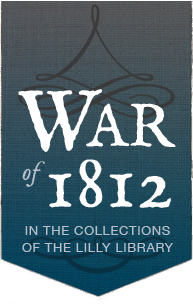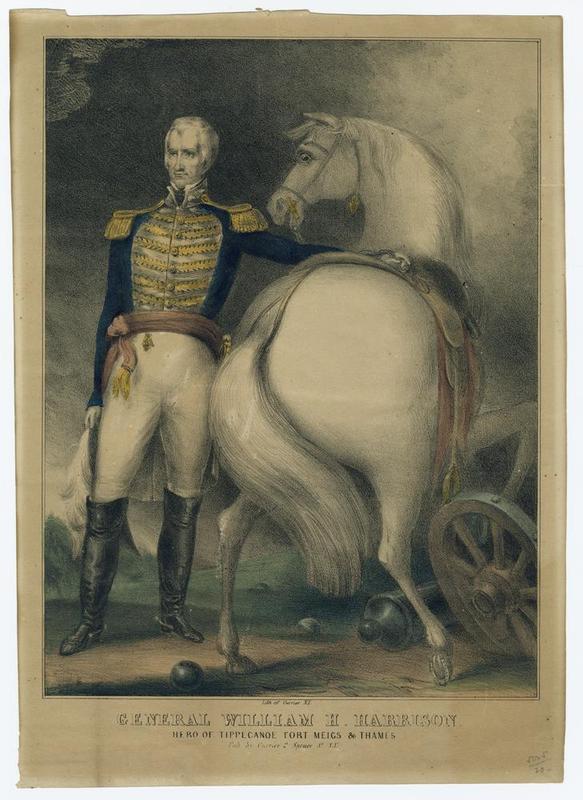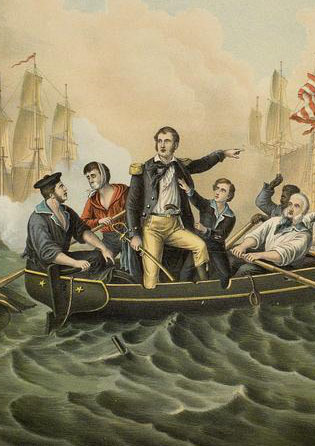Nations & Heroes
Among the principal outcomes of the War of 1812 were changes in national feeling among the participant nations of the war. Canadians today view the war as the first significant step toward nationhood. Defending the border against attack by the more populous United States was a clear victory for the future of what was then British North America. On a more somber note, the lack of a clear British victory and the death of Tecumseh proved to the be the end of the Pan-Indian movement. Some defense of Native American rights was written into the Treat of Ghent, but Americans ignored the provision and the British saw no need to hold the U.S. to the terms.
Despite the fact that the United States did not achieve any of its policy objectives, including those regarding impressment and maritime restrictions, the mere fact that the U.S. had avoided being crushed by British military power was a point of pride. A focus on a few dramatic victories, such as the Battle of New Orleans, allowed Americans to champion the strength of their young nation and celebrate a new generation of heroes, including many who went on to serve in government.
Selective memory on the part of the United States fed into a variety of popular culture, particularly song. Patriotic spirit related to the War of 1812 was also expressed in poetry and drama in the decades following the war.
Related Items
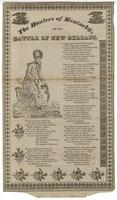
Riflemen as heroes
Hunters of Kentucky. Chambersburg, [Pa.] : J. Pritts, printer, between 1834 and 1839.
Samuel Woodworth published The War, a newspaper focusing on the War of 1812, and wrote poems and prose on the subject of the war. This poem, originally published in 1815, is set to the tune of “Ally Croker,” and celebrates the American victory at the Battle of New Orleans. It contributed to the tale that Kentucky riflemen won the battle, when in reality, Jackson’s artillery played the key role in victory. The song was later adopted as a campaign song by Andrew Jackson.
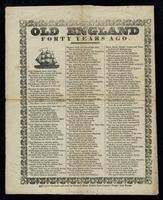
The war in verse
Old England forty years ago. Boston: between 1834 and 1836.
The author of this broadside poem strained to narrate the history of the entire war. Every few lines a new event is introduced: “Decatur, Hull, and Bainbridge dear, / Did wonders in the navy; / Brave Captain Hull sunk the Guerriere, / And Bainbridge sunk the Java.”
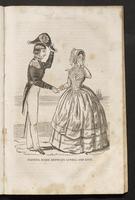
A rousing tale of the War of 1812
Maturin Murray Ballou. The naval officer, or, The pirate's cave : a tale of the last war. Boston : F. Gleason, 1845.
Writing under the pseduonym Lieutenant Murray, Maturin Murray Ballou wrote sensational tales for popular consumption. This novel was published a sequel to an earlier work. The author explained the connection between the two works in his preface: “Our last story, ‘The Female Pirate Captain,’ was laid in the stirring times of the Revolution—the present one, in the gallant days of the late war. At both times, our country was the sword’s point with proud England, an both times did she worst the enemy. Our tale commences then early in the year 1812, and may you favor it with your kind approval.” The linking of the War of 1812 with the Revolutionary war was a common during the war, and as in this work, long after the war, too.


